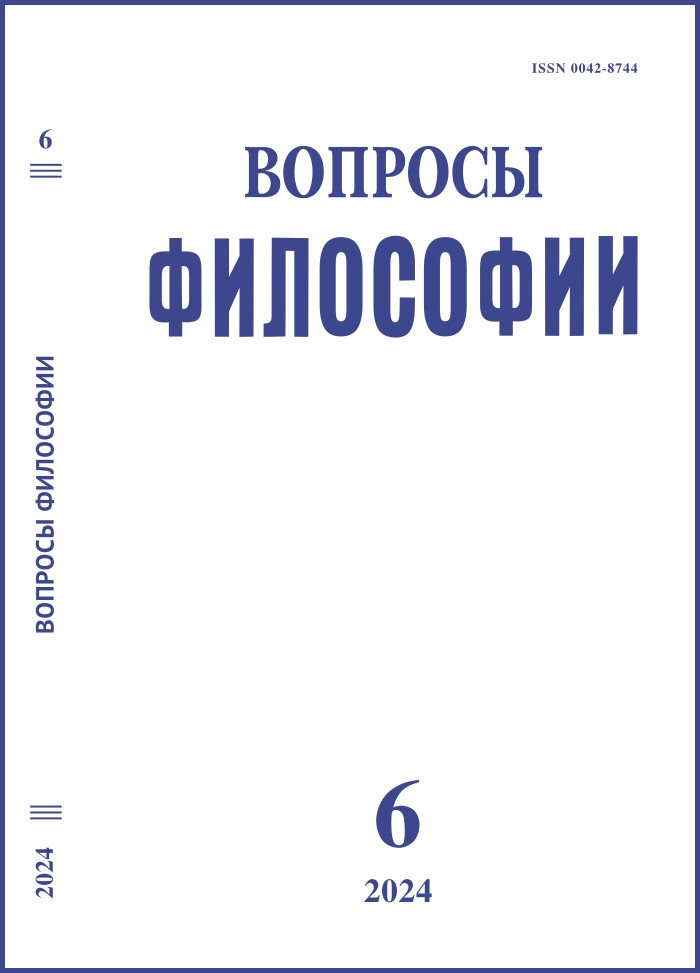The Ideology of Animal Liberation and the “Guilt” of Christianity Part II: The Unavoidability of Anthropocentrism
DOI:
https://doi.org/10.21146/0042-8744-2024-6-198-209Keywords:
ethics of animal treatment, intellectual history of Europe, suffering, speciesism, human chauvinism, Peter SingerAbstract
The critical analysis of the thesis about the guilt of Christianity for the oppression of animals in the West developed by Peter Singer and a number of other ideologists of the animal liberation continues. The concept of speciesism – the fundamental one in this thesis – is decomposed into two components: anthropocentrism and human chauvinism. The changeable and ambiguous nature of the interrelation of these components in European history is traced. It is argued that during this history two basic forms of anthropocentrism have changed: “naïve” and “refined”. At the same time, the second, characteristic of the creators of the scientific revolution of the XVI–XVII centuries, generally did not favor a chauvinistic attitude towards animals. A paradox is revealed that undermines the thesis of the liberationists. Its essence is that the oppression of animals in the West has increased dramatically in the modern era when for it, as Singer also admits, there were least of all religious or other ideological grounds that could go back to Christianity. Postulating the unavoidability of anthropocentrism from any system of ethics the author proves this by the example of the constructions of the liberationists. It also turns out that they themselves use a speciesist approach when it suits their interests. Finally, it is concluded that the way in which liberationists hope to alleviate the fate of animals cannot be effective, since it is based largely on incorrect
assumptions

